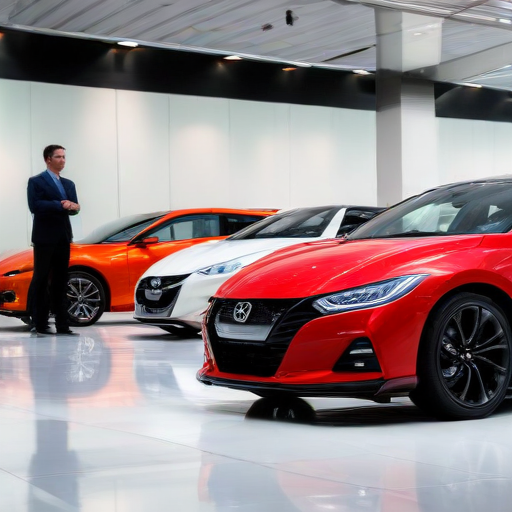Japanese automotive giants Nissan and Honda have embarked on discussions regarding a potential merger, which could establish the third-largest automaker globally by sales. This move comes in light of significant shifts in the car industry towards more sustainable practices, particularly the transition from fossil fuels.
The companies announced that they have signed a memorandum of understanding and that Mitsubishi Motors, which is part of the Nissan alliance, will join in the discussions about integrating their businesses. Honda’s president, Toshihiro Mibe, indicated that the goal is to create a joint holding company, with Honda taking the lead in managing the new structure initially, while maintaining the individual identities and brands of both firms. A formal merger agreement is anticipated by June, with the goal of completing the merger by August 2026.
While specifics about the financial aspects of the merger have not been disclosed, the companies face various challenges that need to be addressed before any formal agreement. Mibe noted there are several aspects that require further study and dialogue, suggesting that while the talks are promising, success is not guaranteed.
Japanese automakers have lagged behind their global counterparts in the electric vehicle sector and are now compelled to streamline operations and innovate to catch up. Rumors of the merger emerged earlier this month, with possible motivations expanding beyond Honda and Nissan, including ambitions from Taiwanese manufacturer Foxconn.
If successful, the merger could create a company valued at over $50 billion, providing the combined entity with a competitive edge against significant players like Toyota and Volkswagen. Together, Honda and the Nissan alliance, which includes Renault and Mitsubishi, could produce approximately 8 million vehicles annually, while Toyota continues to lead the market with 11.5 million units produced in 2023.
Building on previous agreements, the three automakers have already begun sharing electric vehicle components and researching autonomous driving software to adapt to the industry’s rapid changes. Additionally, Honda may benefit from Nissan’s expertise in building electric vehicles and hybrid powertrains, which could enhance its own electric vehicle offerings.
Despite Nissan’s current struggles—exemplified by a recent job cut affecting about 6% of its workforce and a credit rating downgrade—there is hope for recovery through this merger. Nissan’s chief executive, Makoto Uchida, expressed optimism that the integration could lead to delivering enhanced value to customers.
The news has positively impacted share prices, with Nissan’s shares rising 1.6% and Honda’s gaining 3.8%. The conversations reflect a broader industry trend toward consolidation, as the automotive sector adapts to an increasingly competitive global landscape.
In conclusion, the potential merger between Nissan and Honda could not only bolster both companies but also mark a significant step towards increasing competitiveness in the challenging global automotive market. It highlights the industry’s need for collaboration and innovation to thrive in the context of rapid change.
